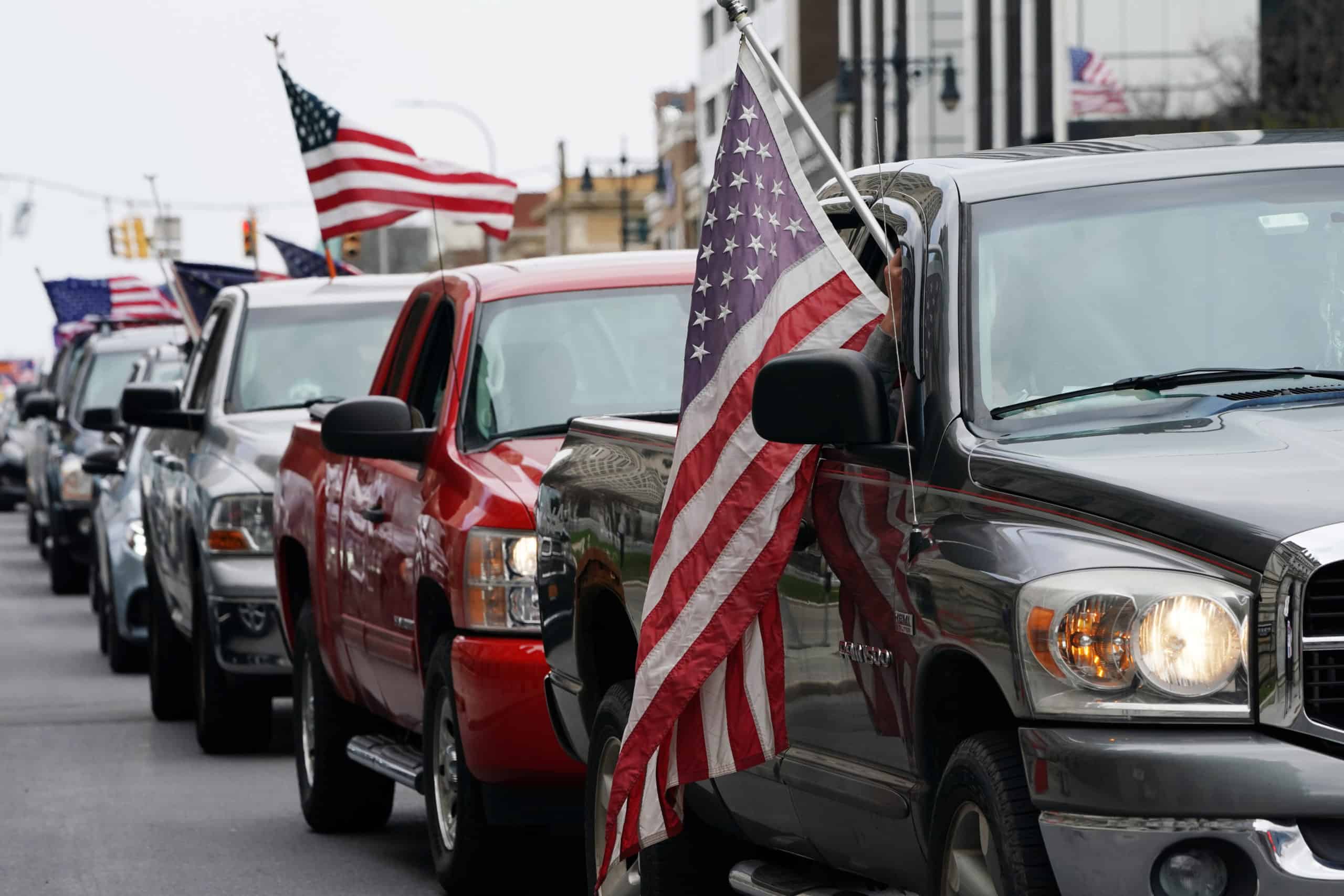Our country has been straining under the pressure of stay-at-home orders. When told to wear masks, people have responded with vitriol in forms such as spit, snot, profanity, and most tragically, murder. In a more organized and public form, people have expressed their anger in protests at state capitals across the country, with the tension reaching frightening heights last week as armed protesters entered the Michigan senate.
Those protesting the orders say they are defending their inalienable right to freedom, while public officials have defended the orders with appeals to security and the common good. To the detriment of the country, our public discourse has set these two goods against each other in a zero-sum competition.
At the root of this conflict is a debate about the nature of freedom itself. Is it an absolute and inalienable right or is it a conditional right dependent on the overall good of society? The conflict between these different notions, I would argue, arises from thinking of freedom solely as a political right. But if we understand our freedom primarily as a gift from God, then the opposing sides in this conflict are not inherently opposed, but can be recognized as different expressions of a shared desire, namely to love.
Reframing freedom in this way does not settle the debate about what to do, but it does dissipate the ostensible zero-sum conflict between individual freedom and the common good. Furthermore, it can lead to greater humility and charity in our public discourse by revealing the legitimate good found on each side.
Freedom is at the very heart of what we believe it means to be an American. The rights and protections enshrined in our founding documents and the virtues lauded in our national stories tell us that our ideal (if not always our reality) is that to be American is to be free.
It is understandable, then, that the recent mandates restricting our freedom to move and gather together would be met with unease and even resistance. Any government action that sacrifices individual freedoms for the sake of the common good by its very nature challenges American identity and the United States’ raison d’etre, even when that good is necessary.
Individual liberty and the common good can be reconciled, though, by understanding freedom above all else as a gift from God. For if freedom is a gift, then contrary to our national values, it is not a good in itself. As St. Ignatius writes in the First Principle and Foundation of The Spiritual Exercises, God grants gifts to each person “that they may help him in prosecuting the end for which he is created,” that end being “to praise reverence, and serve God.”
As Americans, we typically think of freedom as a power of choice, the license to do or say what we please unobstructed. But faith reveals that we are truly free only when we live according to the purpose for which we were made, that is to love the Lord our God with all our heart, soul and mind, and to love our neighbors as ourselves (Mt. 22:36-40).
Understanding freedom in this sense sheds light on the protesters’ errors. The outcry seems to spring not from love, but from resentment toward the mandated limitations on our movement. In its extreme form, that resentment is expressed in gun-carrying protesters and violence against fellow citizens; it goes without saying how antithetical this is to the Christian sense of freedom. But even the demand for freedom alone, which seems to undergird the grievance of all the protesters, is misguided if it is desired for its own sake and not as a means to help us love more completely.
Yet the lens of love also fosters sympathy with some of the protesters’ grievances, even if our faith grounds those grievances on different reasons. Stay-at-home orders are concerning not simply because they restrict our freedom, but because they prevent us from loving in the usual ways. We can no longer share love by visiting family and friends in person. We cannot serve those in need through volunteering and ministry. We cannot share our love for God through communal worship.
This is a painful reality and it more severely affects those lacking reliable internet access or cell phone coverage and those living alone or in more dispersed areas. Additionally, the shocking unemployment numbers just released alarm us to the millions of people who are struggling to care for themselves and their families and are grappling with the loss of meaning, dignity, and purpose that work provides. The government orders have significantly limited our freedom to live out our Christian vocation, and the desire to love tugs us toward wanting to lift these restrictions and reclaim our civic freedoms.
What tempers this desire and prevents the majority of us from joining the protesters, however, is the desire to keep others, especially the vulnerable, safe from this disease. While we may be frustrated by the stay-at-home orders, there is a recognition that staying at home is itself an act of love. By maintaining social distance and “flattening the curve,” we ease the burden on medical professionals, facilities and resources and thereby help ensure that the sick can receive the care they need. Consenting to and obeying the government’s orders, then, can be a way of exercising our freedom and practicing our call to love.
As Christians, we must attempt to see everything, including our freedom, through God’s eyes. And in this light, we see it as a gift given so that we may love more fully and completely. As many states begin to reopen and lift certain restrictions, we must resist the temptation to return to more familiar habits and routines simply because we can. Instead, we must go to God for guidance and prayerfully discern, asking, “God, in these confounding circumstances, how are you calling me to love?” We will discover our true freedom when we humbly accept and act on the reply.


